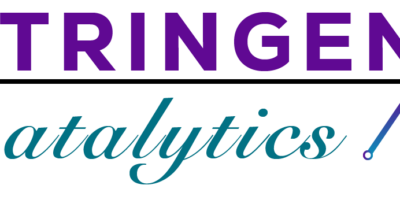The asthma management products market focuses on the various tools and medications used to manage and treat asthma, a chronic respiratory condition characterized by inflammation and narrowing of the airways. Effective management is crucial for improving the quality of life for asthma patients and preventing severe asthma attacks.
Market Size and Growth
The asthma management products market is experiencing growth driven by rising asthma prevalence, increasing awareness about effective asthma management, and advancements in therapeutic technologies. The market is expanding due to a growing demand for innovative and user-friendly asthma management solutions.
Key Components of the Asthma Management Products Market
- Types of Products:
- Inhalers:
- Metered-Dose Inhalers (MDIs): Devices that deliver a specific amount of medication to the lungs in the form of a mist.
- Dry Powder Inhalers (DPIs): Devices that deliver medication in powder form, activated by the patient’s breath.
- Soft Mist Inhalers (SMIs): Devices that create a fine mist of medication for easier inhalation.
- Nebulizers: Devices that convert liquid medication into a fine mist that can be inhaled through a mask or mouthpiece.
- Asthma Spacers: Add-on devices that improve the delivery of medication from MDIs to the lungs by creating a holding chamber.
- Peak Flow Meters: Devices used to measure lung function and monitor asthma control by assessing peak expiratory flow rates.
- Asthma Monitors: Digital devices and smart inhalers that track medication usage, symptoms, and environmental triggers.
- Oral Medications: Includes various classes of drugs such as corticosteroids, leukotriene receptor antagonists, and long-acting beta-agonists (LABAs) used to manage asthma.
- Inhalers:
- Types of Asthma Management:
- Preventive (Controller) Medications: Long-term medications that reduce inflammation and prevent asthma symptoms, such as inhaled corticosteroids and leukotriene receptor antagonists.
- Reliever (Rescue) Medications: Short-term medications that provide quick relief from acute asthma symptoms, such as short-acting beta-agonists (SABAs).
- Biologics: Advanced therapies targeting specific molecules involved in asthma inflammation, used for severe asthma cases.
- End-User Segments:
- Hospitals: Provide comprehensive asthma management, including medication administration and monitoring.
- Specialty Clinics: Clinics focusing on respiratory disorders and asthma management.
- Pharmacies: Retail settings where patients can access asthma medications, inhalers, and other management products.
- Home Healthcare: Increasing use of home-based monitoring and management tools for asthma patients.
- Healthcare Providers: Includes primary care physicians and pulmonologists who prescribe and manage asthma treatments.
Market Trends
- Technological Advancements: Development of smart inhalers and digital asthma monitors that provide real-time data on medication usage and asthma control.
- Personalized Medicine: Tailoring asthma treatments based on individual patient profiles and specific triggers.
- Growing Awareness: Increased focus on asthma education and awareness campaigns to improve disease management and adherence to treatment.
- Integration with Mobile Apps: Use of mobile applications for tracking symptoms, medication usage, and environmental factors affecting asthma.
- Development of Biologics: Growth in the availability and use of biologic therapies for severe asthma.
Market Drivers
- Rising Asthma Prevalence: Increasing number of individuals diagnosed with asthma, driven by environmental factors, urbanization, and lifestyle changes.
- Advancements in Technology: Innovations in inhaler design, digital monitoring, and drug delivery systems improving asthma management.
- Increased Awareness and Education: Growing emphasis on patient education and self-management of asthma.
- Enhanced Healthcare Infrastructure: Expanding access to asthma management products and treatments through healthcare facilities and pharmacies.
- Government and NGO Initiatives: Supportive policies and programs aimed at improving asthma care and control.
Challenges
- High Costs: The expense associated with advanced asthma management products and biologic therapies can be a barrier to access and adherence.
- Medication Adherence: Ensuring patients follow prescribed treatment regimens and use devices correctly.
- Environmental Triggers: Managing asthma in environments with high levels of allergens and pollutants.
- Regulatory Hurdles: Navigating complex regulatory requirements for the approval of new asthma management products and technologies.
- Limited Access in Low-Income Regions: Variability in access to asthma management products and healthcare services in low-income and rural areas.
Get Free Exclusive PDF Sample Copy of This Research Report https://stringentdatalytics.com/sample-request/asthma-management-products-market/14572/
Market Segmentations:
Global Asthma Management Products Market: By Company
Teva Pharmaceutical Industries
AstraZeneca
Boehringer Ingelheim
- Hoffmann-La Roche
GE Healthcare
Merck
Baxter
GlaxoSmithKline
Sanofi-Aventis
Novartis
Global Asthma Management Products Market: By Type
Corticosteroids
Bronchodilators
Others
Global Asthma Management Products Market: By Application
Hospital Pharmacy
Retail Pharmacy
Drug Stores
Online Pharmacy
Global Asthma Management Products Market: Regional Analysis
The regional analysis of the global Asthma Management Products market provides insights into the market’s performance across different regions of the world. The analysis is based on recent and future trends and includes market forecast for the prediction period. The countries covered in the regional analysis of the Asthma Management Products market report are as follows:
North America: The North America region includes the U.S., Canada, and Mexico. The U.S. is the largest market for Cold-chain Pharma in this region, followed by Canada and Mexico. The market growth in this region is primarily driven by the presence of key market players and the increasing demand for the product.
Europe: The Europe region includes Germany, France, U.K., Russia, Italy, Spain, Turkey, Netherlands, Switzerland, Belgium, and Rest of Europe. Germany is the largest market for Cold-chain Pharma in this region, followed by the U.K. and France. The market growth in this region is driven by the increasing demand for the product in the automotive and aerospace sectors.
Asia-Pacific: The Asia-Pacific region includes Singapore, Malaysia, Australia, Thailand, Indonesia, Philippines, China, Japan, India, South Korea, and Rest of Asia-Pacific. China is the largest market for Cold-chain Pharma in this region, followed by Japan and India. The market growth in this region is driven by the increasing adoption of the product in various end-use industries, such as automotive, aerospace, and construction.
Middle East and Africa: The Middle East and Africa region includes Saudi Arabia, U.A.E, South Africa, Egypt, Israel, and Rest of Middle East and Africa. The market growth in this region is driven by the increasing demand for the product in the aerospace and defense sectors.
South America: The South America region includes Argentina, Brazil, and Rest of South America. Brazil is the largest market for Cold-chain Pharma in this region, followed by Argentina. The market growth in this region is primarily driven by the increasing demand for the product in the automotive sector.
Click Here, To Buy Premium Report https://stringentdatalytics.com/purchase/asthma-management-products-market/14572/?license=single
Key Points:
- Define, describe and forecast The Global Market by type, application, end user and region.
- Provide enterprise external environment analysis and PEST analysis.
- Provide strategies for company to deal with the impact of COVID-19.
- Provide market dynamic analysis, including market driving factors, market development constraints.
- Provide market entry strategy analysis for new players or players who are ready to enter the market, including market segment definition, client analysis, distribution model, product messaging and positioning, and price strategy analysis.
- Keep up with international market trends and provide analysis of the impact of the COVID-19 epidemic on major regions of the world.
- Analyze the market opportunities of stakeholders and provide market leaders with details of the competitive landscape.
About Stringent Datalytics
Stringent Datalytics offers both custom and syndicated market research reports. Custom market research reports are tailored to a specific client’s needs and requirements. These reports provide unique insights into a particular industry or market segment and can help businesses make informed decisions about their strategies and operations.
Syndicated market research reports, on the other hand, are pre-existing reports that are available for purchase by multiple clients. These reports are often produced on a regular basis, such as annually or quarterly, and cover a broad range of industries and market segments. Syndicated reports provide clients with insights into industry trends, market sizes, and competitive landscapes. By offering both custom and syndicated reports, Stringent Datalytics can provide clients with a range of market research solutions that can be customized to their specific needs.
Contact Us
Stringent Datalytics
Contact No- +1 346 666 6655
Email Id- sales@stringentdatalytics.com
Web- https://stringentdatalytics.com/




Leave a Reply